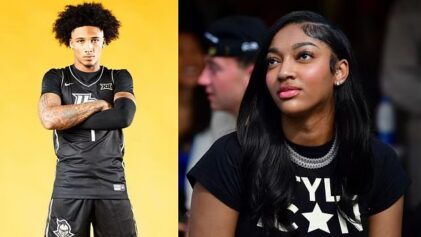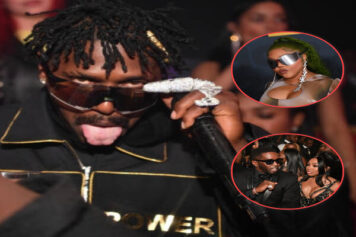Around this time last year, I went to a premiere at NYC’s prestigious Schomburg Center, and watched a documentary called More Than A Month, in which the filmmaker called for the cancellation of all events, festivities and observations surrounding Black History Month. To his credit, the movie was interesting, nuanced, funny and impactful. I sat down as a skeptic and left in agreement that there is some legitimacy to his argument.
However, I couldn’t accept it wholesale and I still can’t, even though I’m aware that Black History Month is a cliché. Not only that; it’s a tired one, full of inconsistencies and redundant ideas about African-American identity politics. The way companies bore into the history books and somehow come up with the same eight names, proves, without a doubt, the depths of their laziness and exploitative practices.
I get it and I recognize the increasing levels of disassociation many black people have with the holiday. But, I must push back on any assertion that it’s a one-trick pony whose time has passed. That annoys me. Makes me angry even. Mostly because, like several other aspects of black life, the time to chill is not here yet. We need to keep our proverbial eyes on the prize.
*********************************************************
I’m mostly bothered by the arrogance. Oh I get it, you guys are so enlightened. So post-modern and too cool for school and beyond the limitations of BHM. I hear you snickering with judgmental tones. “You celebrate Black History Month? Really?…Oh.”
There is a sense of preposterousness, as if celebrating the month is somehow beneath the actions of an intellectual. The questions asked are supposed to pierce the counter argument: “Why is it in the coldest month?” “Why did they pick the shortest month?” and my favorite “Why do we need Black History Month in the first place? I celebrate it everyday.”
Yeah, sure you do.
When writer and historian Carter G. Woodson created, as it was originally called, “Negro History Week” in 1926, it was upon the point of honoring both Frederick Douglass’ and Abraham Lincoln’s February birthdays. There was no hidden-hand conspiracy to force feed BHM into the shortest and often coldest month of the calendar. That’s just an urban legend—like the idea that white people don’t love fried chicken.
Personally, I’m sick of this laissez faire attitude in regard to BHM, as if we have gotten so bedazzled by post-black propaganda that we think it’s cool now to shirk responsibility. There are still too many black kids that are ignorant to the contributions of their forefathers. Further, this attitude only reinforces the flippant notion mainstream society has towards BHM. If black folks aren’t invested in it, why would anyone else be? And trust me, they need to be.
Brainwashed by the exorbitant multitude of media outlets that microsize our contributions, mainstream America barely acknowledges the influence of the black mind on the construction of American society. Labor is one thing—and of course they comprehend the manpower manifested by the legacy of forced service. I’m talking about the applied cognition brought forth by people like Benjamin Banneker and Elijah McCoy, not to mention contemporary names like Dr. Ben Carson. Mainstream privilege doesn’t allow breathing room for any of that. So we’re defined by our entertainers and pro athlete friends and, even in 2013, contextualized in ways unworthy of our status as true Americans.
That’s why I say criticizing Black History Month is bougie.
And I mean the “bad” kinda bougie. It’s what I call a “first-world problem,” the kind of issues that people of certain means can afford to contemplate. The kind most people don’t have the luxury not to care about it.
That’s the argument used by people such as Morgan Freeman, who say that black history is American history and therefore, should be naturally interwoven into the curriculum. I agree wholeheartedly, and it’s nice in theory, but I would feel more comfortable with the average person’s knowledge of American history, if they actually knew it. People can barely identify events from the 1990s, nevermind the 1890s. Lean over and ask your co-worker what important government document is celebrating its 150-year anniversary this year. Or, ask them when the March On Washington took place. Those aren’t “Black History” moments, just regular good ol’ apple pie history moments—the stuff we supposedly learn in grade school.
When people say BHM should be celebrated all year long, I always wonder who the hell says it isn’t? Rock it out. Do you. Manifest the destiny you feel is appropriate. So what if companies use it as a hustle? Are you guys really mad because corporate America is trying to get over on Black History Month? Of course, they are. So what. Don’t even sweat that. Just because your favorite fast food joint throws a black person’s face on their quadruple extra large fountain drink? Get outta here with that.
These are the same complaining jokers who didn’t even bother to see Central Park Five. The same people who were offended that Girls didn’t have any black characters on it last year, and then when they added a black dude this year, got mad because you deemed him a token. There is no need to make a battle out of BHM. It’s not productive at all. What do you hope to gain? The better question is: what will happen when/if it’s gone?
People like to preoccupy themselves with what comes next. It’s the reason retailers start selling spring boat shorts during the third week of January. People are naïve if they think that the historical achievements of black people will somehow organically make their ways into the memory banks of the American populace. Keeping BHM relevant at least forces people to consider some aspects of it. If it goes away, nothing will replace it. Regular American history classes are not ready yet to accommodate black history on that scale. It would be nice if they were, but they aren’t—that’s just the reality.
If teaching mainstream America about the specific names, events and triumphs of our ancestors was the biggest issue, then okay, there’s a (slight) possibility that I could be convinced. But it’s not that easy. We still have hordes of black people who will give you shoulder shrugs if you ask them about Ralph David Abernathy. Seriously. Not Countee Cullen, not Phillis Wheatley, and certainly not Lewis Latimer. I'm talking about Ralph David Abernathy, he was Dr.King’s right-hand man and his contributions to Civil Rights Era events are incalculable. And yet, a bunch of you just hit the internet to search his name. That’s a damn shame.
For the ones who already know about the aforementioned names, you were probably fortunate enough to grow up in an enlightened home with parents who realized the monumental importance of imparting African-American historical relevance into the minds of their children. Either that, or your Af-Am History professor went in like Laurence Fishburne’s character in Higher Learning, and tersely dropped a handful of hellified jewels deep in the regions of your undergraduate cerebrum.
But what about the rest of the community? What about the millions of young black males who drop out of high school every year? Don’t you think they can find a benefit in the self-esteem boost of learning of the success of their forefathers? Or how about the roughly 60 percent of black girls under 18 who are victims of sexual abuse? Do they not need the stories of female empowerment learned from people like Sojourner Truth and Ida B. Wells? Are they not worthy of getting the chance to get a leg up in life? Are we not our brother’s and sister’s keepers?
This doesn’t just apply to impoverished kids and teenagers by the way. There are plenty of adults, who via their lack of passion for their own culture, know little about their own history. Some due to their conventional assimilation and others because they reside in a rural outpost of racial ignorance. There are a lot of cities and states out there and many of them don’t have museums dedicated to Black Americana.
We all know about Malcolm, Martin, Frederick and Mrs. Parks—we learned that in our prepubescent days. Most of us have a trivial knowledge of the Civil Rights Era and Antebellum Slavery, even if we don’t discuss it with any specificity or astuteness. But there are millions who can stand to read books like Pulitzer Prize winner Isabel Wilkerson’s now classic The Warmth Of Other Suns and get schooled on the policies and practices of the Jim Crow Era. To downplay BHM opens the door to changes in governmental policies. You’d only make the void deeper by eradicating it.
But go ahead; to each his own. Clown BHM if you want to. But don’t dare paint your face green and party hard for St. Patrick’s Day. If you do, you might as well check out, because apparently, not only are you not a part of black history, you aren’t a part of black present-day either.



